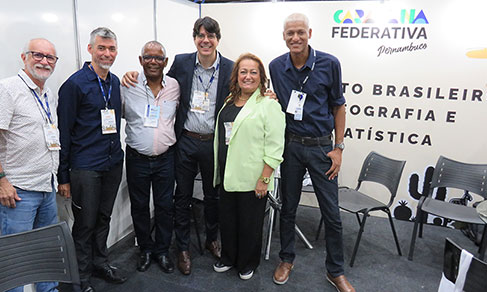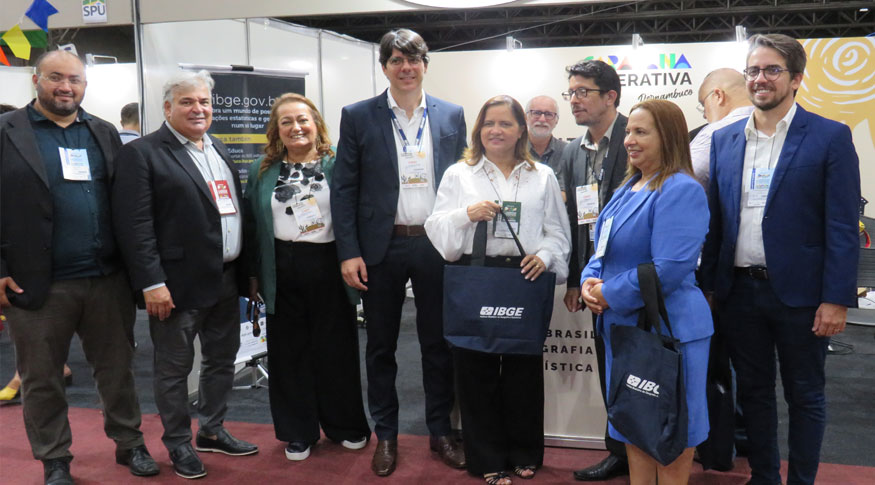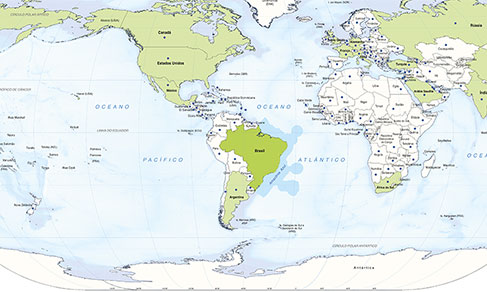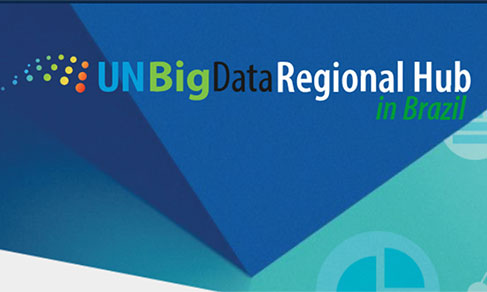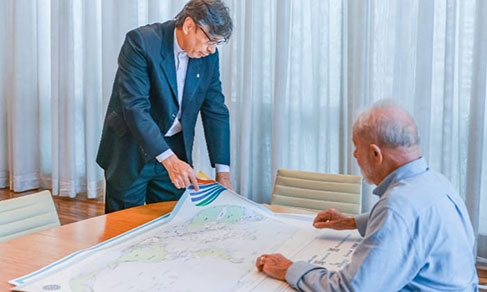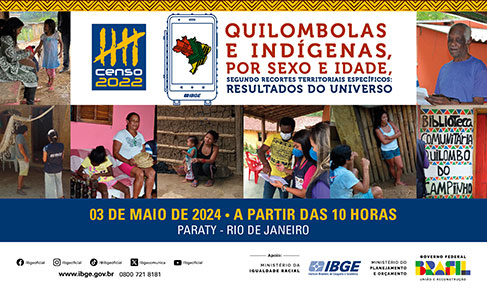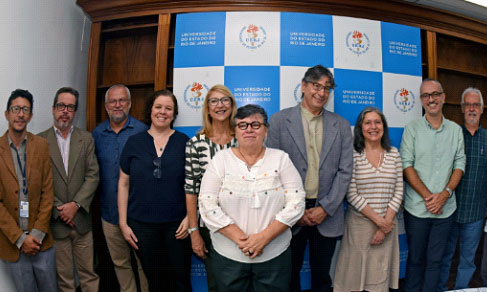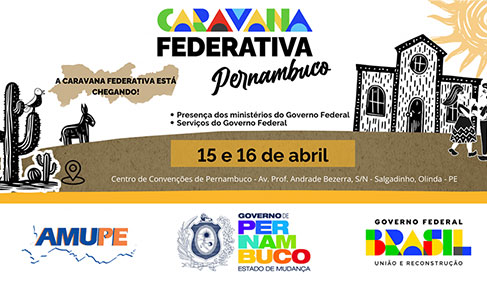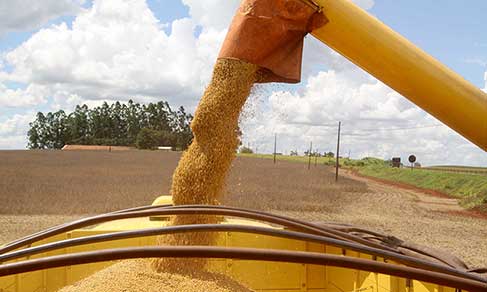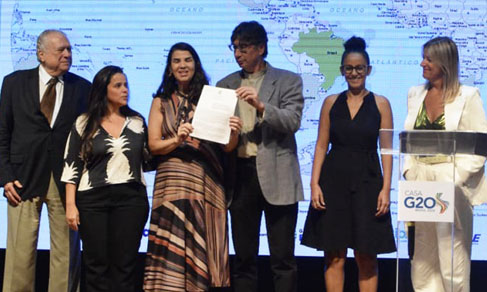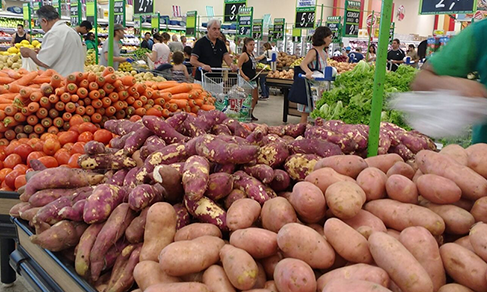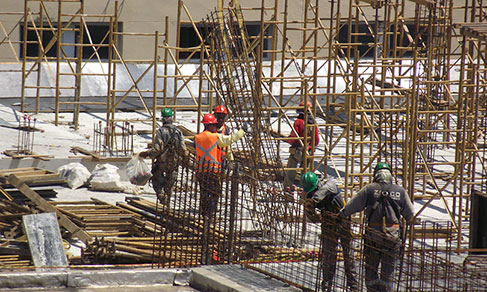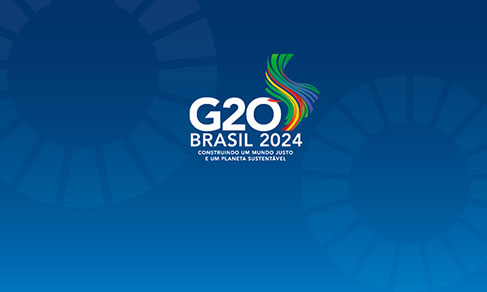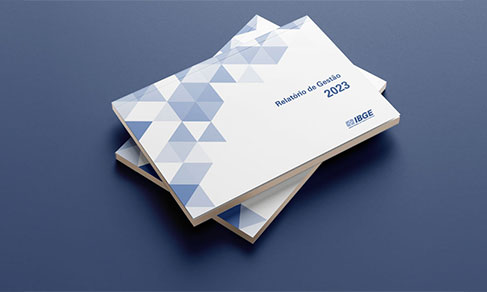2022 Census
IBGE begins training for Census that will coach more than 200 thousand persons
December 14, 2021 10h00 AM | Last Updated: December 15, 2021 02h53 PM
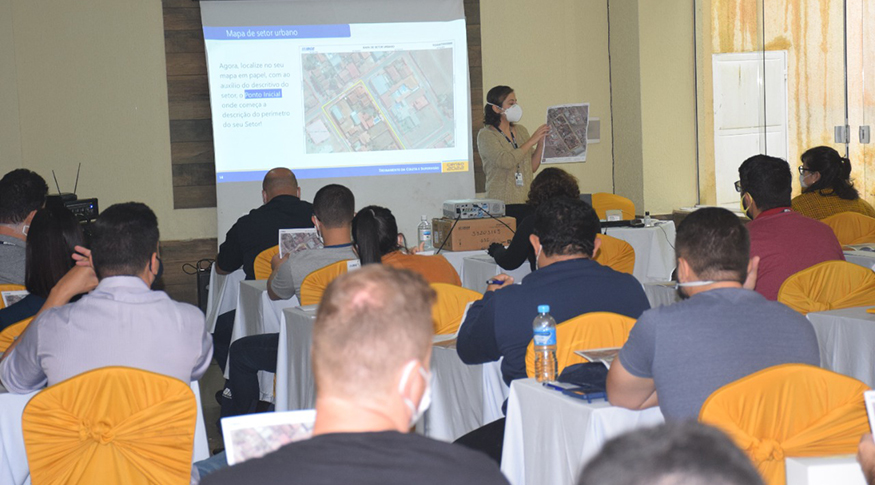
On-site training to coach the network of trainers for the 2022 Population Census began last week. Nearly 60 representatives from the IBGE State Units are in Miguel Pereira, in the interior of Rio de Janeiro, since December 6, being trained to transmit key information about the census operation to teams that will work in their regions. The first phase of the training ends next Friday (17).
The group is learning procedures on how to track and cover enumeration areas and concepts of the questionnaire questions (sample and basic), as well as receiving guidelines on how to approach interviewees, especially when visiting indigenous land and quilombola territories. Supported by the National School of Statistical Sciences (Ence), teaching techniques are also being taught to the new trainers.
“We are teaching the first trainers of the State Units. They will pass the training on to others, shaping a network of trainers until we start to teach the teams that will visit the households. We use the cascading strategy, from few to many. More than 200 thousand people will be trained until the beginning of the data collection, scheduled for June,” explains Cynthia Damasceno, manager of Census training.
Between January and February, the trainers trained in Miguel Pereira will coach more trainers in the state poles, so the training of sub-area census coordinators (CCSs) may begin in March. Municipal census agents (ACMs) and supervisor census agents (ACSs) will be trained in April. In May, enumerators will be trained, nearly ten days before the beginning of the data collection in the Brazilian households, scheduled for June.
This is one more on-site Census training since the beginning of the pandemic. The first ones were carried out for the tests in Paquetá (RJ) and in the 27 Federation Units. The IBGE carried out some online trainings during the social distancing period, in order to keep those involved safe. As the vaccination advances in Brazil and as approved by the Steering Committee, on-site trainings were resumed following health protocols, like the use of masks.
“The on-site format is being very fruitful, as it helps to solve some problems that could not be overcome in the online mode, mainly concerning the use of data collection mobile devices (DMCs) and the localization of enumerators in the field, using maps for example,” explains Fernando Damasco, IBGE manager of Traditional Territories and Protected Areas, one of the trainers.
The Census coordinator in Acre, Lara Torchi Esteves, is participating in the training in Miguel Pereira. For her, the initial phase of the Census is key to the entire data collection network, because the training allows to understand the methodological standards and all the concepts that will be applied by the State Units during the Census.
“On-site training is very valuable. It cannot be compared with the online training. Here we have the opportunity to clarify doubts face-to-face, speak to the persons who will be in charge of each subject and leave here convinced that we will make the best work possible in our State Unit,” says Esteves.
Census training will also have distance learning
Although most of the training chains of the Census are on-site, other chains will be either with distance learning or hybrid, including on-site and online training. For example, teams in the administration and information technology areas will receive distance learning. On the other hand, coordinators of the Post-Enumeration Survey, carried out right after the data collection, will be trained on-site and online.
A distance course to train the agents who will carry out the Survey of Surroundings, which collects information about the urban infrastructure before the enumeration, was also developed. The team of the Census Support Center (CAC) will be trained on-site. CAC will be in charge of receiving telephone calls from those who choose to answer the Census through the Internet.
The IBGE also developed a distance course to train ACMs, ACSs and enumerators, with key information about the census operation. The course will be available in workbook format, during the enrollment period of the next selection process. The content will be included in the tests.
“We wish that candidates for ACM, ACS and enumerator arrive with notions about the Census. The preparation of the candidates for the selection process will streamline their integration in the IBGE, as well as the on-site training with data collection mobile devices (DMC),” states Luciano Duarte, technical coordinator of the Population Census. “The initial phase in Miguel Pereira helps us to adjust the content in order to be cohesive, dynamic and efficient by the time of the enumerators,” completes him.
New selection process and reimbursement of enrollment rate
The IBGE is concluding the final procedures of the new selection process for the 2022 Census. 207,020 positions will be offered for ACMs (5,500 positions), ACSs (18,420) and enumerators (183,100) in all the Brazilian municipalities. Getúlio Vargas Foundation (FGV) is the organizing company. The enrollment schedule will be soon released in the IBGE official channels.
The reimbursement of the enrollment rate to the candidates of the simplified selection process for the 2021 Census, cancelled in October, began on December 3. The reimbursement can be requested by the candidate on the IBGE portal, and the value will be reimbursed in up to 40 days after the request. This guideline is also valid for the reimbursement to those enrolled in the selection process for the 2020 Census, cancelled in 2020.
The enrollments for the selection processes of 2020 and 2021 will not be valid for the new selection of the 2022 Census. Those interested should enroll again and pay the enrollment rate to participate in the new selection process. The Population Census will visit more than 70 million households in all the Brazilian cities as of June next year.


